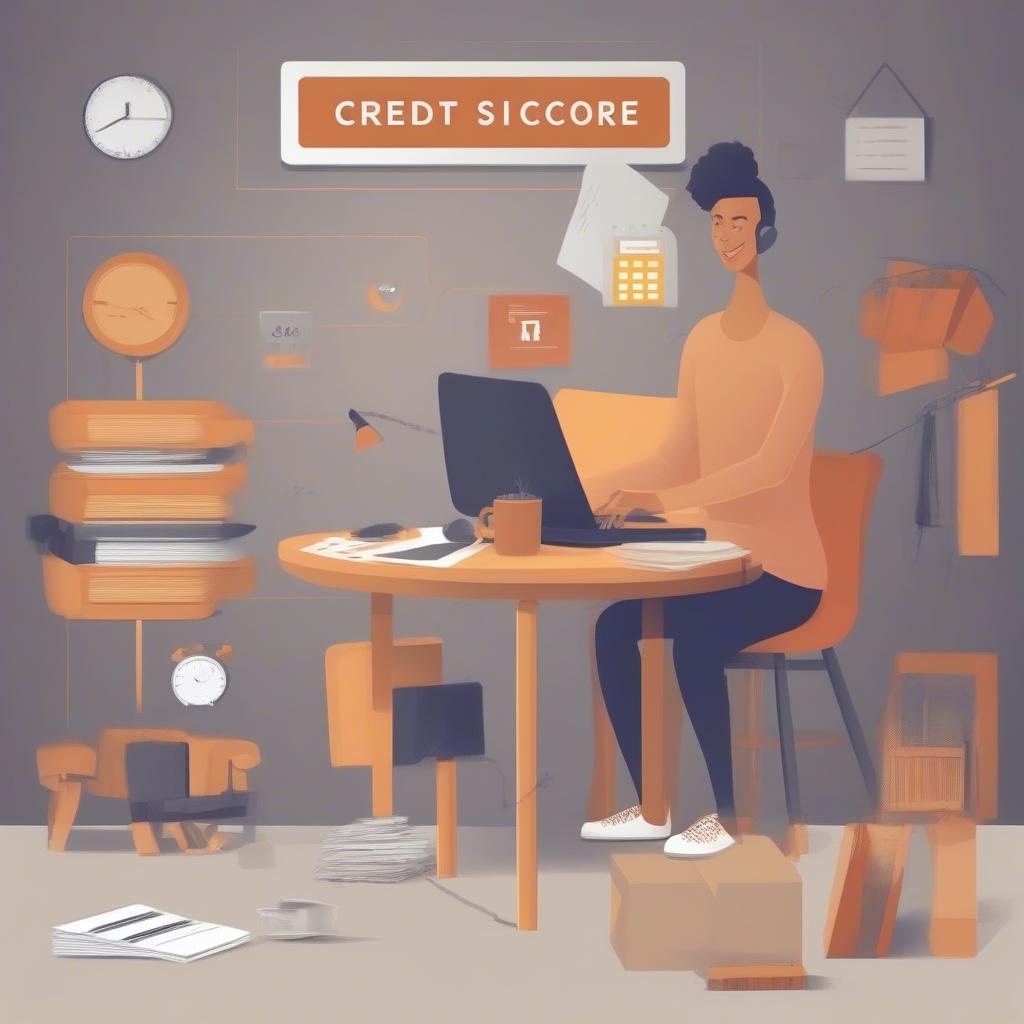
Building Your Credit Score: A Comprehensive Guide
In today’s financial landscape, having a good credit score is essential for accessing credit when you need it. Whether you’re planning to buy a car, a house, or simply looking to improve your financial prospects, a good credit score can open doors to better borrowing options and lower interest rates. In this article, we’ll delve into the world of credit scores, exploring what they are, how they’re calculated, and most importantly, how you can improve yours.
Understanding Credit Scores
A credit score is a three-digit number that represents your creditworthiness, based on your credit history. It’s calculated by credit reference agencies using data from public records, lenders, and other service providers. In the US, there are three main credit reference agencies: Equifax, Experian, and TransUnion. Each agency collects information about you and uses it to create a credit score.
How Credit Scores Are Used
When you apply for credit, lenders and service providers contact their preferred credit reference agency to check your credit record. This record reveals any potential risks of offering credit to you. If you have a good credit score, you’re more likely to be accepted for credit, and at a lower interest rate.
Improving Your Credit Score
So, how can you improve your credit score? Here are some tips to help you over time:
* Get on the Electoral Roll: Being on the electoral roll confirms your identity and home address, which can help improve your credit score.
* Check Your Credit Record: Check your credit record with each credit reference agency and dispute any incorrect information.
* Minimize Debt: Lenders are more likely to offer credit to people with less debt. Try to minimize your debit balances and avoid carrying high levels of debt.
* Make Regular Payments: Making regular payments by Direct Debit can help improve your credit score. Just ensure you have enough money in your account to cover the payments.
* Use and Manage an Arranged Overdraft: Using and managing an arranged overdraft carefully can also help improve your credit score.
Avoiding Common Mistakes
Some common mistakes can harm your credit score. These include:
* Making multiple credit applications in a short period, which can lead to hard credit searches affecting your credit score.
* Failing to make payments or accumulate debts.
* Having a mix of only one type of credit account, such as credit cards or loans.
Understanding Soft Credit Checks
Some lenders offer soft credit checks or quotations on selected products, which can help you understand your eligibility without impacting your credit score.
What Affects Your Credit Score?
Several factors can affect your credit score, including:
* Defaults, County Court Judgments (CCJs), Individual Voluntary Agreements (IVAs), and bankruptcy can negatively impact your credit score for up to 6 years.
* Financial links with others, such as joint account holders, can also impact your credit score.
* Public records, such as court judgments and bankruptcies, can also affect your credit score.
Maintaining a Good Credit Score
To maintain a good credit score, it’s essential to:
* Make regular payments on time.
* Keep your credit utilization ratio low.
* Avoid applying for too much credit in a short period.
* Monitor your credit record and dispute any errors.
Why Is My Credit Score Important?
Having a good credit score can open doors to better borrowing options and lower interest rates. Whether you’re planning to buy a car, a house, or need to access credit in an emergency, a good credit score can make all the difference.
What Are the Benefits of a Good Credit Score?
Some benefits of having a good credit score include:
* Better borrowing options: With a good credit score, you’ll have access to more credit options and lower interest rates.
* Lower interest rates: A good credit score can help you qualify for lower interest rates on loans and credit cards.
* Increased financial flexibility: A good credit score can give you the financial flexibility to make big purchases or take advantage of low-interest rates.
Checking Your Credit Score
Checking your credit score is easier than ever. You can check your credit score with each of the three major credit reference agencies, and some lenders also offer free credit score checks.
How to Check Your Credit Score
You can check your credit score in several ways:
* Check with each of the three major credit reference agencies: Equifax, Experian, and TransUnion.
* Check with your lender: Some lenders also offer free credit score checks.
* Use online credit score services: Some online services, such as Credit Karma, offer free credit score checks.
Conclusion
Building your credit score takes time and effort, but it’s essential for accessing credit when you need it. By following these tips and maintaining a good credit score, you’ll have access to better borrowing options and lower interest rates. Remember, a good credit score is a valuable asset that can open doors to financial freedom. What is a credit score?
What is a credit score?
*A credit score is a three-digit number that represents your creditworthiness, based on your credit history.*
How are credit scores calculated?
*Credit scores are calculated by credit reference agencies using data from public records, lenders, and other service providers.*
What are the main credit reference agencies in the US?
*The main credit reference agencies in the US are Equifax, Experian, and TransUnion.*
How do lenders use credit scores?
*Lenders use credit scores to assess the risk of offering credit to you and to determine interest rates.*
What can I do to improve my credit score?
*Get on the electoral roll, check your credit record, minimize debt, make regular payments, and manage an arranged overdraft carefully.*
What are common mistakes to avoid to maintain a good credit score?
*Avoid making multiple credit applications, failing to make payments, carrying high debt, and having a mix of only one type of credit account.*
What are soft credit checks?
*Soft credit checks are checks on your credit report that do not affect your credit score, often used for pre-approval offers.*
What factors can negatively impact my credit score?
*Defaults, CCJs, IVAs, bankruptcies, financial links with others, and public records can negatively impact your credit score.*
How can I maintain a good credit score?
*Make regular payments, keep your credit utilization ratio low, avoid applying for too much credit, and monitor your credit record.*
Why is a good credit score important?
*A good credit score can provide better borrowing options, lower interest rates, and increased financial flexibility.*
What are the benefits of having a good credit score?
*A good credit score provides better borrowing options, lower interest rates, and increased financial flexibility.*
How can I check my credit score?
*You can check your credit score with Equifax, Experian, and TransUnion, or through some lenders and online credit score services.*

